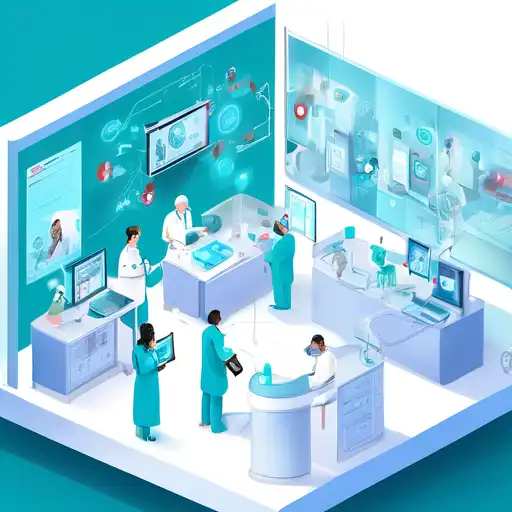Introduction to IoT in Healthcare
The Internet of Things (IoT) is revolutionizing various sectors, and healthcare is no exception. By integrating IoT devices and technologies, healthcare services are becoming more efficient, personalized, and accessible. This article explores the transformative impact of IoT on healthcare services, highlighting key innovations and benefits.
Key IoT Innovations in Healthcare
IoT in healthcare encompasses a wide range of applications, from wearable devices to advanced monitoring systems. Here are some of the most impactful innovations:
- Wearable Health Monitors: Devices like smartwatches and fitness bands track vital signs in real-time, enabling proactive health management.
- Remote Patient Monitoring: IoT devices allow healthcare providers to monitor patients' health remotely, reducing hospital visits and readmissions.
- Smart Pills: These ingestible sensors transmit data about medication adherence and bodily responses, ensuring effective treatment.
- IoT-enabled Hospital Equipment: From smart beds to automated dispensing systems, IoT is optimizing hospital operations and patient care.
Benefits of IoT in Healthcare
The integration of IoT technologies in healthcare offers numerous advantages:
- Enhanced Patient Care: Real-time data collection and analysis enable personalized and timely medical interventions.
- Cost Reduction: IoT reduces healthcare costs by minimizing unnecessary hospital visits and optimizing resource utilization.
- Improved Accessibility: Remote monitoring and telemedicine services make healthcare more accessible, especially in rural areas.
- Data-Driven Decisions: The vast amount of data generated by IoT devices supports informed decision-making and predictive analytics.
Challenges and Considerations
Despite its benefits, the adoption of IoT in healthcare comes with challenges:
- Data Security: Protecting sensitive patient data from breaches is a critical concern.
- Interoperability: Ensuring seamless communication between diverse IoT devices and systems is essential for effective integration.
- Regulatory Compliance: Healthcare providers must navigate complex regulations to ensure IoT solutions meet legal and ethical standards.
Future Prospects
The future of IoT in healthcare is promising, with advancements in AI and machine learning further enhancing its capabilities. Innovations like AI-driven diagnostics and blockchain for secure data sharing are set to redefine healthcare services.
Conclusion
IoT is undeniably transforming healthcare, offering unprecedented opportunities for improving patient outcomes and operational efficiency. As technology evolves, the potential for IoT to further revolutionize healthcare is limitless. Embracing these innovations while addressing challenges will be key to unlocking their full potential.
